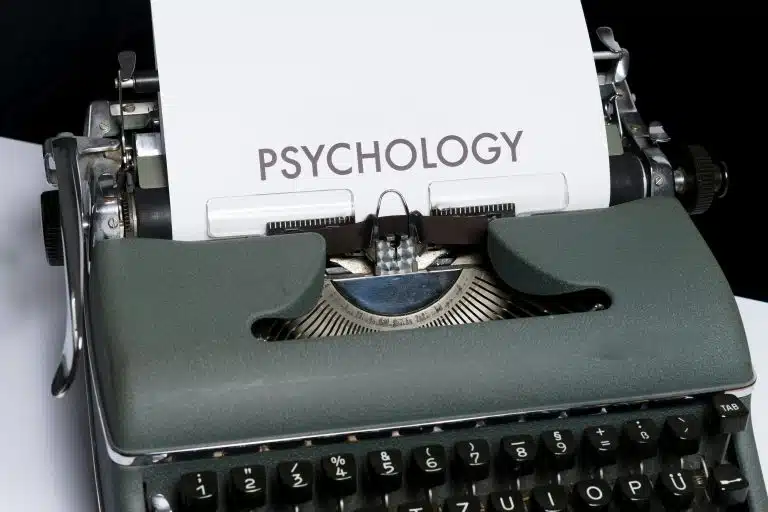Psychology is everywhere: courtrooms, marketing teams, hospitals, classrooms, even your TikTok feed. So it’s no surprise it’s one of the most popular majors in the Ivy League. But if you’re serious about studying it, you probably want more than just a degree with a fancy logo. So, which one is the best Ivy League school for psychology?
We’re breaking down the top five schools that really deliver: Harvard, Princeton, Yale, Columbia, and Cornell. We’ll look at rankings, lab access, grad school placements, and real career outcomes. Whether you’re thinking undergrad or eyeing graduate studies, this is the list that’ll actually help you choose.
- Best Ivy League Schools for Psychology Ranked
- Harvard University
- Princeton University
- Yale University
- Columbia University
- Cornell University
- Frequently Asked Questions
- Takeaways
Best Ivy League Schools for Psychology Ranked
Let’s clarify: not every Ivy League school is ranked equally in psychology. Here’s how each one stacks up based on the 2025 U.S. News & World Report rankings for undergraduate and graduate psychology programs:
| Ivy League School | Undergrad Psychology Ranking (2025) | Grad Psychology Ranking (2025) | Psychology Program Offered |
| Harvard | #2 | #3 | Undergrad + PhD (clinical + research) |
| Princeton | #2 | #3 | Undergrad + PhD (research only) |
| Yale | #5 | #6 | Undergrad + PhD (clinical + research) |
| Columbia | #8 | #14 | Undergrad + PhD (research only) |
| Cornell | #8 | #14 | Undergrad + PhD (research only) |
| UPenn | N/A | #8 | PhD only (research only) |
| Brown | N/A | #27 | PhD only (clinical + research) |
| Dartmouth | N/A | #30 | Undergrad + PhD (research only) |
Based on these rankings, we’ll focus on the top 5 Ivy League schools for psychology. These are the ones that consistently lead in both academic reputation and career outcomes, whether you’re looking at undergrad, grad school, or long-term ROI.
Harvard University
Harvard is one of the best Ivy League schools for psychology, ranked #2 for undergrad and #3 for graduate psychology in the 2025 U.S. News rankings. It’s a research powerhouse with global name recognition and massive resources behind its psychology department.
Undergrad psychology at Harvard
Undergrad psychology students at Harvard choose between tracks like:
- General Track
- Cognitive Neuroscience and Evolutionary Psychology Track (a Life Sciences initiative)
- Cognitive Science Track (a Mind, Brain and Behavior initiative)
- Secondary Field in Psychology
Courses cover everything from moral cognition to perception, and students often join labs by their sophomore year.
Harvard psychology grads pursue a wide range of careers after graduation. According to department data from 2016–2022, the top 10 career paths include:
- Consulting
- Finance, Banking, and Investment Services
- Healthcare and Medicine
- Community and Social Services
- Scientific Research
- Consumer Goods and Retail
- Education
- Communications, Marketing, Advertising, and PR
- Computer Science and Technology
- Entertainment, Film, Music, Publishing, and Sports
This shows how versatile a Harvard psychology degree really is. Graduates are going into everything from medicine and finance to media and sports. Whether you’re aiming for academia or a Fortune 500, psychology at Harvard sets you up to choose your lane.
Harvard psychology PhD
The PhD program at Harvard is selective, fully funded, and focused on research. Students work in social, clinical, developmental, or cognitive tracks and often publish before graduating. Clinical students also train at Harvard-affiliated hospitals like McLean and Mass General.
PhD students in psychology receive full financial support through Harvard Griffin GSAS. This includes tuition and health fee grants for all five years, plus stipends for living expenses during the first, second, and final year—without any required employment.
Additional support includes:
- Summer research awards in years 1 through 4
- Top-up stipends to supplement standard funding
- Guaranteed teaching fellowships in years 3 and 4
- Dissertation completion fellowships in the final year
The goal is to let students focus fully on their research without financial stress or work obligations.
In 2025, Harvard ranked #1 in the world for psychology in the QS World University Rankings, with a perfect 100/100 employer reputation score. That global recognition isn’t just for show—Harvard’s psychology grads routinely land academic posts, NIH fellowships, and research leadership roles across industries.
From 2013 to 2023, 100% of clinical psychology students who applied for internships were successfully placed, and nearly all secured APA- or CPA-accredited placements—the gold standard in clinical training.
Just as important, every single intern from 2013 through 2023 received paid placements, which says a lot about the quality and competitiveness of Harvard’s partner institutions. The numbers speak for themselves:
- In most years, 100% of clinical psych interns were paid
- The lowest recorded year still had a 75% paid placement rate
- No students were left unpaid for more than a single year during the entire 10-year span
This near-perfect record for both placement and compensation highlights just how strong Harvard’s clinical psychology training is, not just in theory, but in real-world readiness.
Princeton University
Princeton may fly under the radar compared to Harvard and Yale, but it’s ranked #2 for undergrad and #3 for graduate psychology, which makes it a quiet leader in the Ivy psychology scene. Princeton’s psychology department is especially strong in cognition, decision-making, and neuroscience.
Undergrad psychology at Princeton
Psychology majors at Princeton take courses across subfields and are required to complete a senior thesis. Students work directly with faculty at centers like the Princeton Neuroscience Institute and the Kahneman-Treisman Center for Behavioral Science. It’s a small, research-driven program that punches well above its size.
Princeton psychology PhD
The Princeton psychology PhD program is tight-knit, fully funded, and geared toward academic research. Students often land fellowships or faculty placements post-graduation, with research in cognitive psych, neuroimaging, and behavioral science.
Graduates often go on to top-tier PhD programs, cognitive science labs, or data and analytics roles in the private sector. The school’s small size means more research access and direct mentorship early on.
Yale University
Yale ranks #5 for undergrad and #6 for graduate psychology, with one of the most comprehensive and interdisciplinary programs in the Ivy League. Yale’s department of psychology is known for strengths in emotion science, developmental psych, and clinical training.
Yale was also ranked #5 globally in the 2025 QS World University Rankings for Psychology, with a strong overall score of 89.6 and an employer reputation rating of 88.2.
Undergrad psychology at Yale
Yale offers both BA and BS options, plus a neuroscience track. Students can work in labs like the Yale Center for Emotional Intelligence or the Yale Child Study Center. Psychology here crosses into philosophy, medicine, and law, making it ideal if you’re into interdisciplinary thinking.
According to Yale’s Class of 2024 data:
- 61.5% of psychology grads were working full time (including university research roles)
- 12.3% were enrolled in graduate or professional school
- 6.1% were doing internships
- 6.1% were still seeking employment
- A smaller percentage entered research fellowships, service programs like AmeriCorps, or freelance and creative roles
These numbers show that most Yale psych grads secure meaningful next steps within just six months of graduation.
Whether you’re jumping straight into work, doing a funded research year, or heading to grad school, most students secure strong next steps within half a year.
Psychology PhD at Yale
Yale’s psychology PhD offers five core programs of study:
- Clinical Psychology
- Cognitive Psychology
- Developmental Psychology
- Neuroscience
- Social/Personality Psychology
Each track is research-focused, and students typically spend their first two years completing core coursework while simultaneously working in labs with faculty advisors.
Yale’s psychology PhD program is fully funded, with annual stipends around $49,500. Students train in clinical, social, cognitive, or developmental psychology and often publish by year three. Many go on to top postdocs or clinical residencies.
Columbia University
Columbia’s psychology department is ranked #8 for undergraduate psychology and #14 for graduate psychology by U.S. News in 2025. But it ranks even higher globally: coming in at #7 in the 2025 QS World University Rankings for Psychology, with an overall score of 88.3 and an employer reputation rating of 78.1.
Its NYC location is a major advantage for students interested in applied psychology, clinical research, or cross-disciplinary work in medicine, media, and tech.
Undergrad psychology at Columbia
The undergraduate psychology department at Columbia covers five major areas:
- Cognition
- Neuroscience
- Developmental psychology
- Social-personality psychology
- Perception
You’ll get access to labs like the Social Cognitive and Affective Neuroscience Lab and can intern at places like the New York State Psychiatric Institute.
According to a Columbia psychology department survey, 79.8% of psychology majors were employed or accepted to grad school or fellowships shortly after graduating. Specifically, 58.1% went straight into jobs, 20.3% into graduate school, and 1.4% into fellowships.
Top employers included institutions like the Memorial Sloan Kettering Cancer Center, KIPP, AllianceBernstein, and the Public Health Foundation of India. This wide range shows how versatile the degree is across industries.
Columbia psychology PhD
Columbia’s psychology PhD is a research-focused program centered on behavioral neuroscience, cognition, perception, and social-personality psychology. It does not include clinical, counseling, or school psychology training. Those tracks are offered separately at Columbia’s Teachers College.
Students begin their own research in the first year and are encouraged to shape their path through seminars, area colloquia, and close faculty mentorship. The program has very few course requirements, which gives students more time to focus on research and publishing. Many work across overlapping areas like cognitive and social psych.
There are usually 30 to 40 PhD students in residence at a time. All receive full funding through university fellowships or external grants. Graduates often move into faculty roles, medical research institutions, think tanks, or applied research positions in tech and public policy.
If you want to focus on experimental psychology and work in a flexible, research-driven environment, Columbia is a strong choice, especially with its access to NYC-based labs and partner institutions.
Cornell University
Cornell is tied at #8 for undergraduate psychology and #14 for grad psych. Cornell’s psychology department offers broad training in research methods, theory, and applied psych. It’s a good fit for students who want access to multiple subfields and early research exposure.
Undergrad psychology at Cornell
Cornell’s undergraduate psychology major is offered through the College of Arts & Sciences and the College of Human Ecology. Students can focus on social, cognitive, or behavioral psych, and the program is built around hands-on lab research.
Core classes in statistics and experimental design set the foundation, while upper-level seminars explore everything from perception and memory to personality and development.
Cornell psychology majors have strong employment outcomes. According to 2024 data:
- Median salary: $47,000
- Salary range: $24,960 to $100,000
As for top industries:
- Human healthcare (39%)
- Education (14%)
- Nonprofit organizations (11%)
- Law, consulting, communications, media, and government (each 4–7%)
When it comes to top employment locations:
- New York
- Massachusetts
- Pennsylvania
Employers range from university hospitals and school districts to consulting firms and government agencies. The program’s blend of research, theory, and flexibility helps students land roles in applied psychology, education, and public service, or go on to graduate school in psych, law, or medicine.
Cornell psychology PhD
Cornell’s psychology PhD program offers training across several research areas, including cognition, neuroscience, perception, and social behavior. Students are expected to engage in research early and often, typically working closely with a primary advisor while attending departmental seminars and colloquia.
The program is fully funded, with tuition, health insurance, and stipends provided through fellowships or assistantships.
Alumni outcomes show strong long-term stability. Based on Cornell’s doctoral career survey, 100% of psychology PhD graduates were employed 10, 15, and 20 years after graduation, with most employed outside of postdoc roles by the five-year mark. In fact, 88% were in permanent jobs five years out, and that number reached 100% by year 10.
Career paths reflect a strong academic focus. Among those not in postdoc roles:
- 71% were in tenure-track faculty positions two years post-degree.
- That percentage adjusted to 45% at five years, then rose again to 52% at 15 years, and 55% at 20 years.
- Around 20% consistently held non-tenure-track education roles between 10 and 20 years out.
- Others moved into industry, nonprofit work, government, or self-employed roles, making up the remaining 20 to 30 percent over time.
These numbers point to strong long-term job security and an academic-heavy trajectory, with flexibility for applied or cross-sector roles later on. If you want a psychology PhD that opens doors to research, teaching, and policy work alike, Cornell’s program delivers on all fronts.
Frequently Asked Questions
1. What is the best Ivy League for psychology if I want to focus on research?
If research is your focus, Princeton and Harvard are among the best Ivy League schools for psychology. They are widely recognized as universities that specialize in psychology research, offering high faculty publication rates, strong funding, and early opportunities for undergrads and PhDs to join labs.
2. Which Ivy League is best for psychology if I want to become a therapist?
If you’re planning to pursue clinical psychology or therapy, Harvard and Yale are often considered the best Ivy League for psychology with clinical tracks. Both offer strong lab experience, APA-accredited training, and post-grad placements in hospitals or mental health organizations.
3. Are there Ivy League schools for psychology that offer both undergrad and PhD programs?
Yes. Most Ivy League schools for psychology on this list offer both undergrad and PhD programs. Harvard, Yale, Princeton, Columbia, and Cornell all provide seamless pathways for students to continue into graduate-level psychology research or clinical work.
4. What is the best Ivy League for psychology if I want to focus on social psychology?
If you’re interested in social psychology, Yale and Columbia are two of the best Ivy League for psychology to explore. Both offer strong faculty mentorship in social-personality research, active labs that study emotion, group behavior, and identity, and opportunities to connect your work to law, public health, and policy. It’s a great setup if you want to dig deep into how people think, feel, and interact.
5. What’s the difference between a BA and BS in psychology?
A BA in psychology usually includes more humanities and social science courses, making it ideal if you want flexibility or plan to double major. A BS in psychology is more research-focused, with extra coursework in math, biology, or neuroscience. If you’re aiming for grad school or clinical training, the BS can give you a stronger technical foundation.
Takeaways
If you’re still trying to figure out the best Ivy League for psychology, here’s what actually matters:
- Harvard and Princeton are tied at the top when it comes to rankings, but they offer very different experiences. Harvard covers both clinical and research tracks with broad resources, while Princeton focuses strictly on academic research in a smaller, more focused setting.
- Yale stands out for its flexibility and interdisciplinary reach. It offers strong programs in clinical, cognitive, and developmental psych. It also holds a top 5 global ranking and excellent post-grad outcomes at both the undergrad and PhD levels.
- Columbia’s biggest edge is its location in New York City, which gives students access to labs, hospitals, and internships across multiple industries. It may not be ranked as high, but the hands-on opportunities make it one of the best Ivy League schools for psychology if you’re aiming for real-world experience.
- Cornell is ideal for students who want a combination of depth and variety across psychology subfields. With early lab access and strong academic mentorship, it also has one of the most stable long-term career outcome records among Ivy psychology PhD programs.
- Still not sure which is the best Ivy League for psychology for your goals? A college admissions consultant can offer personalized support to help you choose the right program, craft a strong application, and increase your chances of getting in.




